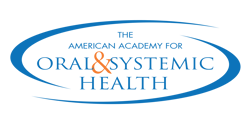Treating Inflammation with Natural Compounds Instead of NSAIDs
Inflammation is rampant today in our society, due largely to our standard American diet, stressful lifestyle, poor sleep habits, and lack of exercise. Inflammation results in the release of a cascade of cytokines that wreak havoc on nearly every cell, organ, and system in our bodies. As dental professionals we are confronted with the most common form of inflammation—periodontal disease. Often times, the additional burden of periodontal infection is the tipping point for our patients who are already systemically inflamed.
Inflammation is our body’s natural defense mechanism to a stressor and vital to our survival in times of acute crisis. The damage occurs when inflammation becomes chronic, as our bodies can no longer handle the onslaught of the inflammatory chemicals that are released during stress or injury.
As members of the dental community, it is not only important for us to understand the consequence of oral inflammation, but to help our patients manage it. Instructing our patients about inflammatory foods like sugar, high fructose corn syrup, highly processed foods and oils, and GMO foods (just to name a few) is our responsibility as health care providers. Unfortunately, most of our patients typically present with a history of regular NSAID usage. The long-term side effects of their use can be devastating to the gut, the kidneys, the brain, and even increase the risk of cardiovascular incidents. Because of these significant side effects, there is a greater interest in natural compounds, such as dietary supplement and herbal remedies, to reduce pain and inflammation.
Plant- and animal-derived nutraceutical preparations have been used for hundreds and even thousands of years to obtain effective pain relief and diminish inflammation. The following is a list of scientifically validated natural products of interest offering relief from pain, swelling and inflammation with fewer (if any) side effects than NSAIDs.
- Omega-3 polyunsaturated fatty acids (PUFA) are some of the most effective natural anti-inflammatory agents and most robustly studied products available. The active ingredients in fish oil, eicosapentaenoic acid (EPA), and docosahexaenoic acid (DHA) enhance the conversion of COX to prostaglandin E3. This natural anti-inflammatory prostaglandin inhibits arachidonic acid conversion to prostaglandin E2, a highly inflammatory cytokine. Prostaglandin E3 also suppresses the release of tumor necrosis factor alpha (TNF), another inflammatory cytokine.
- Curcumin, derived from turmeric, has long been used in both Ayurvedic and Chinese medicines as an anti-inflammatory agent. It is known to inhibit inflammation by regulating the activity of cytokines by inhibiting both COX-1 and COX-2 inflammatory pathways. A very promising study also showed antimicrobial properties specifically on actinomycetemcomitans (AA) with curcumin. The researchers concluded curcumin has the potential to be effective when used as a supportive approach for the successful treatment of periodontitis due to the decreased cell survival and virulence of AA.
- Boswellia are trees in India and the Arabian Peninsula that produce a resin known as frankincense. This resin possesses anti-inflammatory, anti-arthritic, and analgesic properties that derive from the inhibition of leukotriene biosynthesis. Leukotrienes are inflammatory mediators released by leukocytes as part of the inflammatory cascade. Boswelia has also been shown to block the production of IL-1, IL-6 and the TNF-α—all major players in the inflammatory cascade. A combination of Boswellia and curcumin showed superior efficacy and tolerability clinically in reducing pain and swelling.
We have access to safe, inexpensive and effective alternatives to NSAIDs at our disposal. Our responsibility as our patients’ advocate is to inform them about frequently used, but potentially harmful, therapies including the use of NSAIDs. The dental team needs to embrace these natural alternatives as therapeutic strategies to help alleviate the inflammation epidemic.
